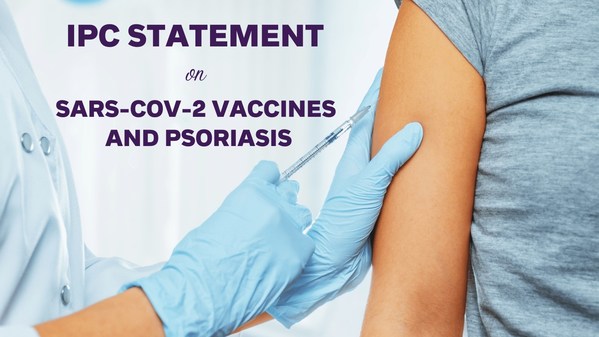 |
ST. LOUIS, Dec. 3, 2020 /PRNewswire/ -- The SARS-CoV-2 pandemic continues to have a considerable impact on the provision of appropriate care to people with psoriasis. In many countries there is currently great excitement about the potential initiation of vaccination programs to people at risk and the general population. While this news is to be welcomed, the impact of psoriasis therapy, particularly systemic therapy, on the effectiveness and safety of vaccines needs to be considered.

The International Psoriasis Council (IPC) advises physicians and other healthcare practitioners to take into account the following:
The IPC will continue to provide updates to the global dermatology community as we learn more about SARS-CoV-2, vaccines and their impact on psoriasis.
For the latest information on the coronavirus (COVID-19) outbreak, including prevention and signs and symptoms of the disease, refer to the World Health Organization (WHO) website.
About International Psoriasis Council
The International Psoriasis Council is a dermatologist-led global organization with a network of more than 100 psoriasis experts dedicated to improving the health of people with psoriasis. IPC helps psoriasis patients get better care and treatment by conducting research into the disease and providing health care professionals with resources and education to best manage their patients with psoriasis.
Contact: Christy Langan, International Psoriasis Council
Phone: (971) 404-5018
Email: Christy.Langan@psoriasiscouncil.org
Photo - https://mma.prnasia.com/media2/1347233/covid_vaccine_statement_ipc.jpg?p=medium600
Logo - https://mma.prnasia.com/media2/254789/international_psoriasis_council_logo.jpg?p=medium600